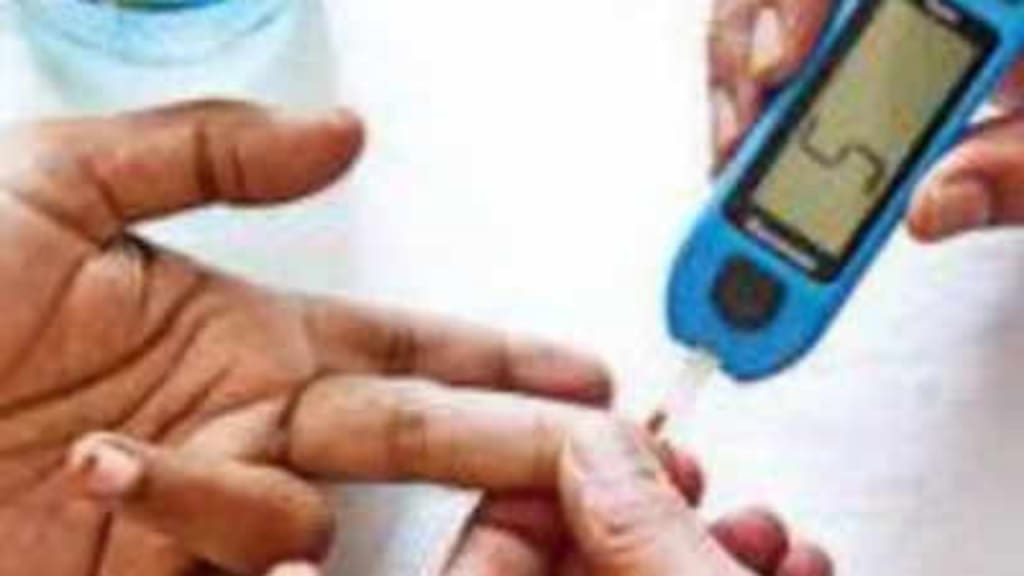Is there a way to treat Type 1 diabetes? It appears to have worked for one individual.
Ceracare: Type 2 Diabetes & Blood Sugar Support

Type 1 diabetes governed Brian Shelton's life. He would fall consciousness without notice when his blood sugar dropped too low. He collided with a wall on his motorcycle. While delivering mail, he passed out in a customer's yard. After that incident, his employer advised him to leave the Postal Service after a quarter-century of service. He was 57 years old at the time.
Cindy Shelton, his ex-wife, saw a request for persons with Type 1 diabetes to participate in a Vertex Pharmaceuticals trial earlier this year. The business was putting a medication to the test that had been created over decades by a scientist who had pledged to discover a cure after his children were diagnosed with the condition. The first patient was Shelton.
On June 29, he received an injection of stem cell-derived cells that functioned similarly to the insulin-producing pancreatic cells his body lacked. His body now regulates his insulin and blood sugar levels on its own. Shelton, now 64, may be the first person to be cured of Type 1 diabetes thanks to a breakthrough medication that has scientists hopeful that assistance is on the way for many of the 1.5 million Americans who suffer from the illness. Shelton stated, "It's a whole new life."
Experts in the field of diabetes were taken aback, although care was advised. The trial, which will last five years and involve 17 persons with Type 1 diabetes, is still ongoing. It is not indicated as a therapy for Type 2 diabetes, which is more frequent.
Dr. Irl Hirsch, a diabetes expert at the University of Washington who was not involved in the study, stated, "We've been searching for something like this to happen for decades." He wants to see the results, which have yet to be published in a peer-reviewed publication, repeated in a larger number of people. He also wants to know if there will be any side effects, as well as whether the cells will last a lifetime or if the therapy would have to be repeated. "In the end," he remarked, "it's an excellent result."
Doug Melton, a Harvard University scientist, was the catalyst for the whole thing. He had never considered diabetes until his 6-month-old son, Sam, became ill in 1991 and was diagnosed with Type 1 diabetes. Unless patients receive insulin injections, type 1 diabetes is fatal.
Patients are at risk of losing their eyesight. Because their blood sugar drops during sleep, people with Type 1 diabetes are at risk of having their legs amputated and dying at night. His four-year-old daughter Emma, who was four years older than Sam at the time, eventually had the condition at the age of 14.
A pancreas transplant or a transplant of the pancreas' insulin-producing cell clusters, known as islet cells, from an organ donor's pancreas is the only solution. However, because to a scarcity of organs, this technique is impossible. Melton began researching diabetes with the hopes of discovering a solution. He chose embryonic stem cells, which have the ability to transform into any cell in the body. His objective was to convert them into islet cells that may be used to cure patients.
The goal was to discover out what chemical instructions would cause stem cells to transform into insulin-secreting islet cells. The research entailed determining how islets are formed in the pancreas and carrying out studies to direct embryonic stem cells toward becoming islets. In 2014, a tiny group of researchers made a breakthrough after years of failure.
They dyed the liquid in which the stem cells were thriving. If the cells produced insulin, the liquid would become blue. One researcher noticed a slight blue hue that grew deeper and darker after hours of waiting. The squad was overjoyed. They have created working pancreatic islet cells from embryonic stem cells for the first time.
If you want to maintain your diabetes, Just follow this Supplement






Comments
There are no comments for this story
Be the first to respond and start the conversation.